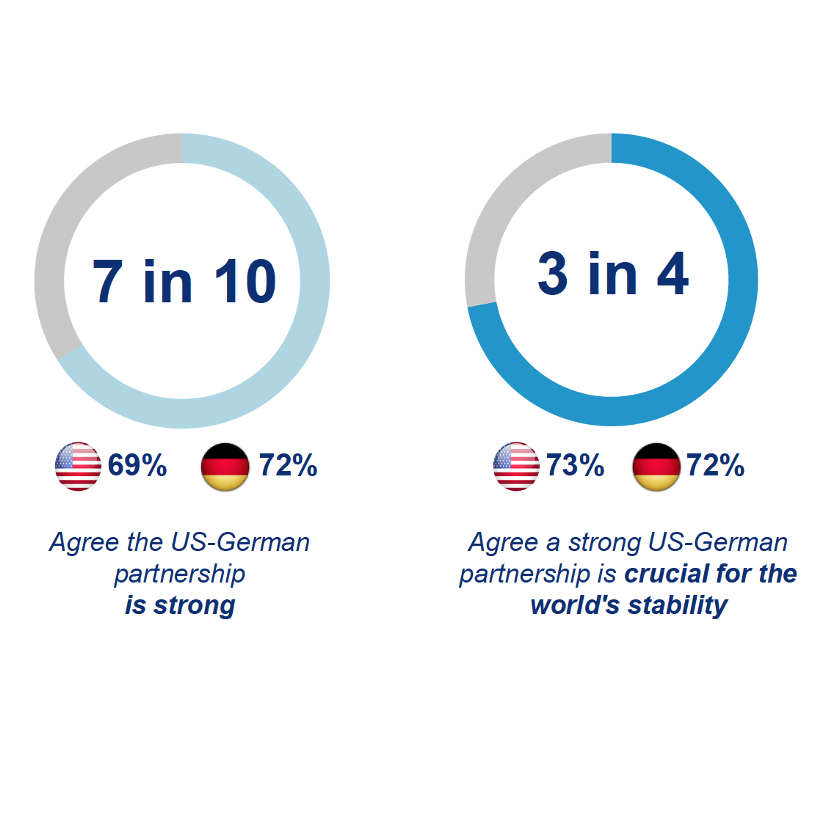Holding Together in Times of Crisis: A New Era for German-American Relations
Mutual trust and a confident outlook on transatlantic relations in a time of war and crisis currently characterize the German-American partnership. This was made clear by the various panels at the 2022 German-American Conference of the American Council on Germany and Atlantik-Brücke at the Allianz Forum in Berlin on June 13 and 14. “There is no desirable alternative to the partnership with the United States,” emphasized former German Foreign Minister Sigmar Gabriel, Chairman of Atlantik-Brücke, in his opening speech. On the occasion of the 70th anniversary of the two organizations, Mr. Gabriel recalled that former wartime enemies had become friends in the course of just one generation. This was “a small miracle,” he said. With regard to the current global political situation, he noted that it had been a mistake to try to counter Russian power politics with economic integration. Germany needs to review and revise its policy toward Russia, he said. “Uncertainty and instability will define the next decade,” Mr. Gabriel said.
Since Russia’s invasion of Ukraine, a new period of transatlantic unity and solidarity has begun, said Clark Price, Deputy Chief of Mission at the U.S. Embassy in Berlin. More than ever, he said, democratic values which are under attack in Europe, the United States, and around the world need to be defended and passed on from one generation to the next. Ambassador John Emerson, Chairman of the ACG and former U.S. Ambassador to Germany, emphasized that the challenges posed by Russia’s war of aggression, the COVID-19 pandemic, climate change, and attacks on democracy can only be met through a strong transatlantic partnership. Drawing on a survey that was released to coincide with the conference, he said “I am hopeful because young people, in particular, believe that the best days of the transatlantic relationship are still ahead of us.”
The state of trust in the German-American partnership is the subject of a recent study by the opinion research institute Edelman Data & Intelligence (DxI), which was commissioned by Allianz SE, the ACG, and Atlantik-Brücke. Allianz CEO Oliver Bäte cited the key findings in his opening address to the roughly 300 participants at the conference. The results of the survey of more than 4,000 Americans and Germans paint a positive picture of the partnership: a majority (70 percent of Americans and 75 percent of Germans) believe that the transatlantic partnership is needed more than ever. A majority (88 percent of Americans and 86 percent of Germans) also believe that sharing a common view of the value of democracy is an outstanding reason to trust each other’s governments. And a majority (76 percent of Americans and 80 percent of Germans) express that coordination among transatlantic partners on defense and economic challenges should improve. “Our partnership needs to be permanently renewed with a focus on achieving concrete positive outcomes for our citizens, such as access to quality education and good health care,” Mr. Bäte noted.
“Our partnership must be permanently renewed”
Oliver Bäte
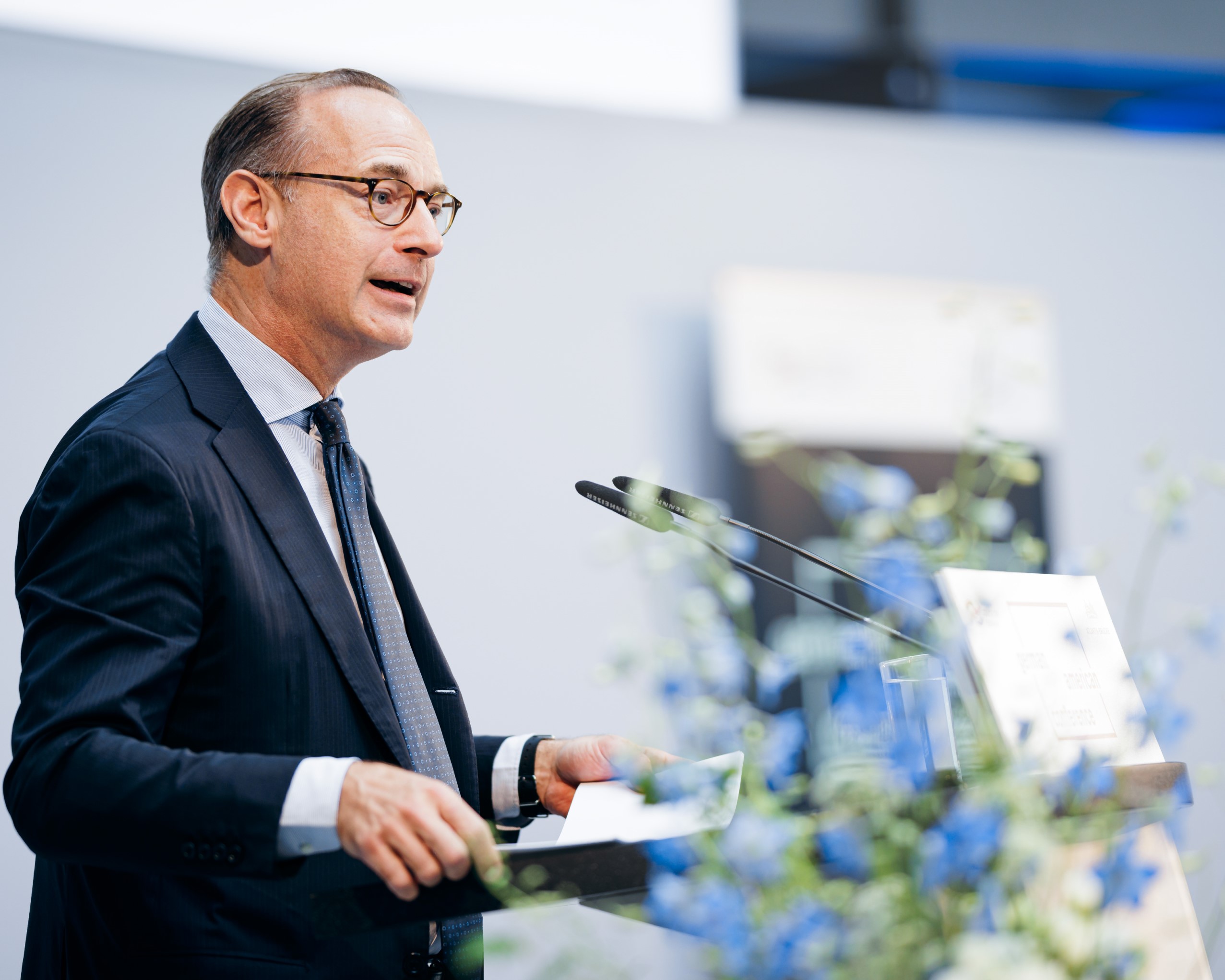
“To trade and ignore any geostrategic risk is no longer sustainable””
Dr. Norbert Röttgen
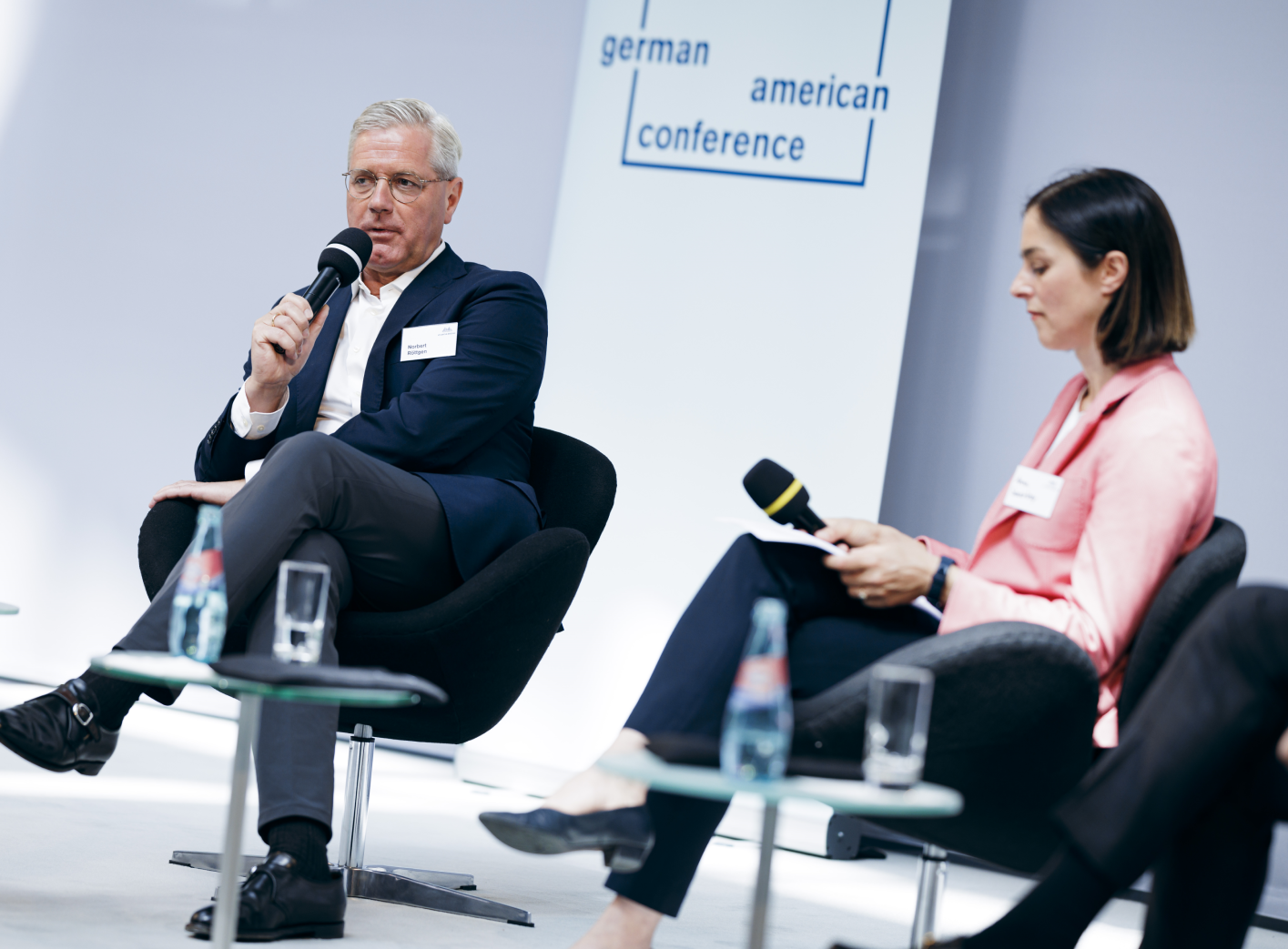
The first panel, which was moderated by Michael Laha, Alexander von Humboldt Foundation German Chancellor Fellow at Mercator Institute for China Studies, explored the question of whether Germany’s “Zeitenwende” will sustain transatlantic convergence with regard to China. The German government is currently working on a comprehensive China strategy, explained Ambassador Petra Sigmund, Head of the Asia and Pacific Division at the German Federal Foreign Office. Germany’s bilateral relationship with China is about defending German interests, she said. Above all, competitiveness should be secured based on technological sovereignty. Another important aspect of the strategy is Germany’s cooperation with partners to protect the rules-based international order. Overall, it is also important to reduce Germany’s economic dependence on China in a controlled manner. The war in Ukraine is not distracting the U.S. from its engagement in the Indo-Pacific, stressed Noah Barkin, Managing Editor in the China practice at Rhodium Group and Visiting Senior Fellow in the Asia Program at the Berlin Office of the German Marshall Fund. The cornerstones of U.S. strategy, he said, are that the U.S. government does not want a new Cold War, there is no conflict between the populations of the United States and China, and no state must choose between the United States and China in their systemic rivalry. Moreover, he said, the Biden administration is explicitly not talking about decoupling from the Chinese market. Ambassador Sigmund maintained that China and Russia agree on a number of issues. These include the rejection of NATO and the European Union, but also the fact that both think in terms of spheres of influence, disregarding the principles of international law of sovereign states and territorial integrity.
The reliability of the transatlantic partnership was the guiding point explored in the second panel. Ambassador Emerson said that the U.S. government under President Biden is working together with its international allies in an exemplary manner. Bundestag member Dr. Norbert Röttgen (CDU/CSU), who serves on the Foreign Affairs Committee, reinforced this view: “The U.S. government is more European than most European governments. America is back as the central power for security in Europe.” Nevertheless, the transatlantic partners need a new division of labor and tasks. Germany must play its part in making Europe a global political player, he said. “Germany has changed its foreign and security policy more fundamentally and quickly than at any time since World War II,” Dr. Röttgen said. However, he said, Germany’s reluctance to supply arms to Ukraine has caused very great disappointment in Eastern Europe. Still, Germany is rejecting leadership, this is regrettable, he said. As for the challenge from China, Ambassador Emerson noted that President Xi Jinping considers it part of his legacy that Taiwan firmly belongs to China – with or without the use of force. This, he said, is something the United States, Germany, and Europe must prepare for. Dr. Röttgen agreed, adding that Germany must reduce its dependencies on China: “Germany’s economic model of trading while ignoring any geostrategic risk will no longer be sustainable.” Dr. Anna Sauerbrey, Foreign Politics Coordinator for Die Zeit, moderated the conversation.
The third panel focused on a common security and defense policy in the Euro-Atlantic area. Paul-Anton Krüger, Parliamentary Correspondent for Süddeutsche Zeitung, guided the conversation. NATO has long tried to keep the door open to Russia for dialogue, said Dr. Stefanie Babst, Principal and Global Policy Advisor at Brooch Associates in London and former Chief Strategic Policy Analyst for NATO. With Russia’s invasion of Ukraine, she said, that opportunity has passed. More Russian attacks should be expected on the defense alliance’s eastern flank, he said. NATO now needs a serious debate that includes bold decisions, she urged: “We need to contain Russia. We need to think and act for the long term. And we have to break ‘Putinism’ – otherwise, it will break us.” Dr. Markus Kaim, Senior Fellow at the German Institute for International and Security Affairs (SWP), noted that Europe needs to define its role in the world and answer concretely what the European pillar in NATO should look like and what it should do. Transatlantic partners still need an effective nuclear deterrent, emphasized Dr. Seth Johnston, a U.S. Department of Defense Military Officer stationed in Europe and Visiting Professor at Heidelberg University. Dr. Johnston, who offered his personal view during the conference, advocated that NATO members coordinate their economic policies and develop initiatives to jointly defend democracy.
The war in Ukraine is also impacting the world’s food supply explained Jens Wiegmann, Foreign Editor for WELT/WELT am Sonntag, who moderated the panel. The global hunger crisis began before the Russian invasion, Ambassador Ertharin Cousin, CEO and Managing Director of Food Systems for the Future and former Executive Director of the United Nations World Food Program, said. She added that the war had exacerbated the crisis. The pandemic had previously put pressure on local and regional supply chains, especially in Africa, causing food prices to rise extremely, she said. This was compounded by high prices for energy and fertilizers. “Without wheat from Ukraine, we are now seeing a dramatic worsening of the global hunger crisis,” Ambassador Cousin stated. It is a crisis of access to food, not a shortage of supply. Alexander Müller, Managing Director at the TMG Think Tank for Sustainability, addressed the Black Sea blockaded by Russian warships and the ports in Odesa and other cities mined by the Ukrainian navy in this context: “We’re dealing with a cascading effect of several factors at once.” Seven countries exported 75 percent of the world’s wheat, Mr. Mueller explained. Eritrea, for example, imported 100 percent of its wheat from Ukraine. In the short term, he said, the G7 would have to agree on a humanitarian action to share some of their food storage with the hardest-hit countries. Ambassador Cousin stressed that the international community now should invest in fertilizer and wheat with the G7, the IMF, and the World Bank, and organize debt relief for the poorest countries. Seeds, tools, and knowledge could be made available quickly to help smaller producers in crisis countries in particular.
In a lively debate moderated by author and journalist Katja Gloger, Dr. John Mearsheimer, R. Wendell Harrison Distinguished Service Professor in the Department of Political Science at the University of Chicago, and Dr. Christoph von Marschall, Diplomatic Correspondent of the Editorial Board for Der Tagesspiegel, shared their inherently different views on Russia and the war in Ukraine. “The fundamental cause of this crisis lies in the U.S. policy of wanting to make Ukraine a bulwark against Russia as an EU member, as a member of NATO, and as a Western democracy,” Dr. Mearsheimer said. From Russia’s perspective, he said, this poses an existential threat. The U.S. has ignored these concerns from the Kremlin. “This war started because Russia does not respect the international peace order. Every country has the right to decide on its own alliances,” Dr. von Marschall contradicted his American counterpart. Dr. Mearsheimer said Ukraine would likely lose 20 to 25 percent of its land area to Russia because of the war. Dr. von Marschall, on the other hand, explained what he meant by Russia’s defeat: that Russia would learn to accept an order and that it would withdraw back to its territory. Dr. Mearsheimer, referring to possible negotiations between Russia and Ukraine, suggested that they should include talk of a neutral status for Ukraine. And the West should seriously consider reducing or even completely ending its sanctions against Russia after a diplomatic solution is reached.
Bundestag member Omid Nouripour, who serves as Co-Chairman of the Green Party, called for transatlantic partners to “stand together against the rule-breakers of this world” in the systemic rivalry between democracies and autocracies. The U.S. and Europe should place a major focus of their work on technology cooperation vis-à-vis China’s standards, such as in mobile phone technology, he said. Dr. Steven E. Sokol, President of the ACG, held a one-on-one conversation with Mr. Nouripour following his remarks.
“Without wheat from Ukraine, we are seeing a dramatic worsening of the hunger crisis”
Ambassador Ertharin Cousin
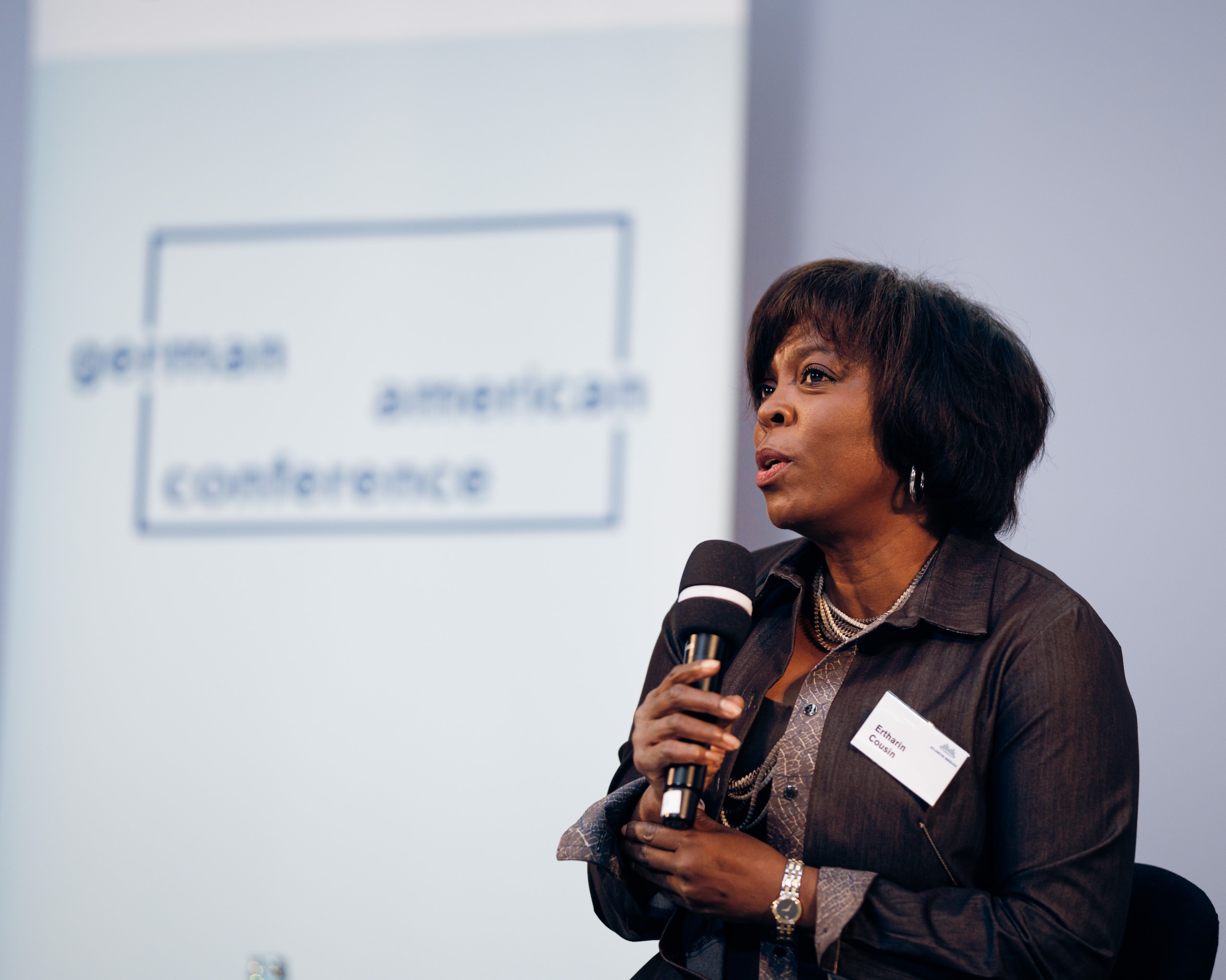
“In the part of Europe that is not under America's protection, there is war.”
Minister Christine Lambrecht
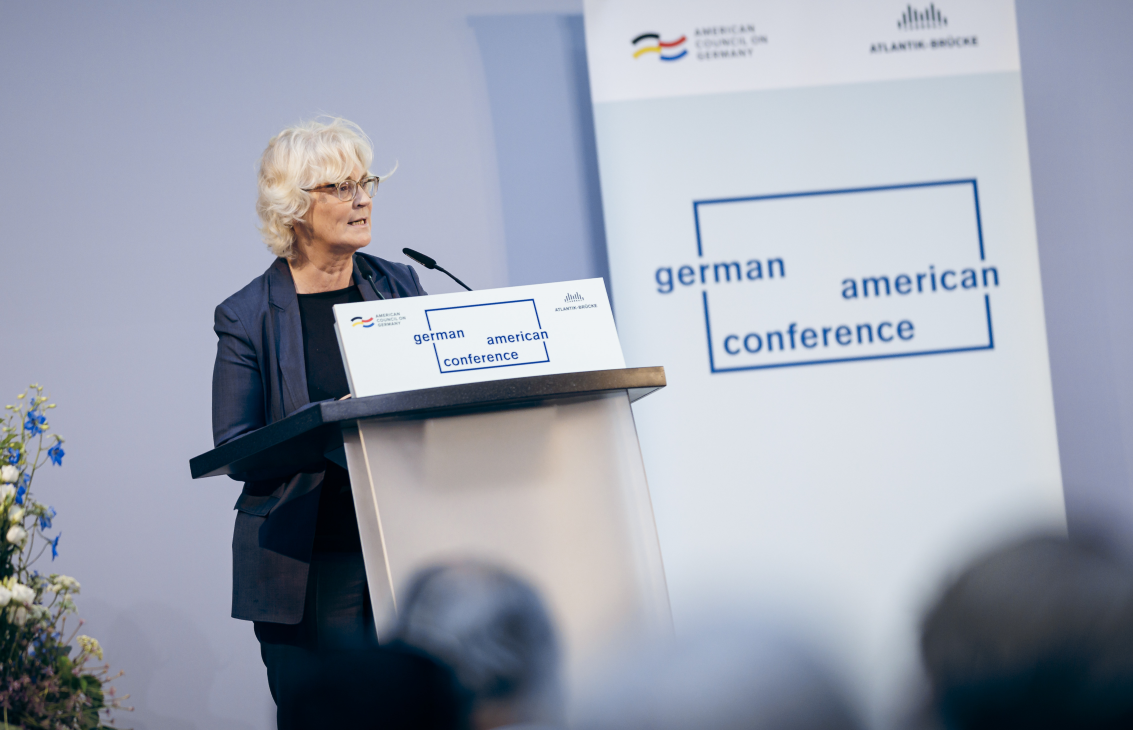
Concluding the first day of the conference, German Defense Minister Christine Lambrecht noted in her closing address, “in the part of Europe that is not under America’s umbrella, there is war.” She said this illustrated that the United States remains a life insurance policy for the rest of Europe and for Germany. Likewise, he said, Article 5 of the NATO treaty remains the core of European security. In order to enable the Bundeswehr to perform its main task – national and alliance defense – the special assets of 100 billion euros should be used to expand the Bundeswehr into an all-round army and equip it accordingly in all branches of the armed forces. Julia Friedlander, CEO of Atlantik-Brücke, spoke with Minister Lambrecht on Germany’s commitment to the Zeitenwende in a fireside chat following the Minister’s speech.
The second day of the conference began with a panel discussion, moderated by Birte Meier, Investigative Journalist for ZDF, explored the economic and social impact of the many current crises. It is hardly possible to look at the crises separately, said Dr. Adam Tooze, Shelby Cullom Davis Chair of History and Director of the European Institute at Columbia University. Dr. Jutta Allmendinger, President of the WZB Berlin Social Science Center and Professor of Educational Sociology and Labor Market Research at the Humboldt University, highlighted the Corona crisis: “Children are suffering the most from the pandemic. Some of them are in psychological treatment.” The energy crisis, in turn, affects poorer people the most. “It is clear that the various crises are not a great equalizer within the population,” Dr. Allmendinger explained. On the contrary, inequality of classes, sectors, and states will increase, Dr. Tooze added. Commenting on the force of the simultaneous and never-ending crises, he noted, “Problems are our permanent state. We face an avalanche of challenges. We are all overwhelmed.” Looking at the transatlantic partnership, Dr. Allmendinger said she was confident that trust in governmental problem-solving capacity could be restored through good policy. The mechanisms for doing so, she said, are well known – clear communication, transparency of actions, and engaging many stakeholders in a focused dialogue.
The following panel highlighted Germany’s and Europe’s energy dependence on Russia by beginning with Svitlana Zalishchuk, Advisor to the CEO of Naftogaz, describing the situation in Ukraine. She said 700 towns and villages are currently without electricity; two of the largest refineries, which provided 98 percent of the gasoline supply, have been destroyed; 249 critical energy infrastructure facilities have also been destroyed. “Too little diversification and too little investment in other energy sources have made the EU very dependent on Russian energy. And this is financing Russia’s war,” she said. It’s not just the war that should lead to a rethinking of European energy policy, noted ACG Young Leader alumna Tracy McKibben, Founder and CEO of MAC Energy Advisors LLC. “The climate crisis as an existential threat should imperatively lead to diversifying the energy mix, i.e., using new technologies to focus on renewables, hydrogen, and biomass,” she stressed. She added that it is now necessary to invest in the future of energy supply and security. This will create new jobs, she added. Sven Egenter, Editor in Chief for CleanEnergyWire, moderated the discussion.
“We are facing an avalanche of challenges. We are all overwhelmed”
Dr. Adam Tooze
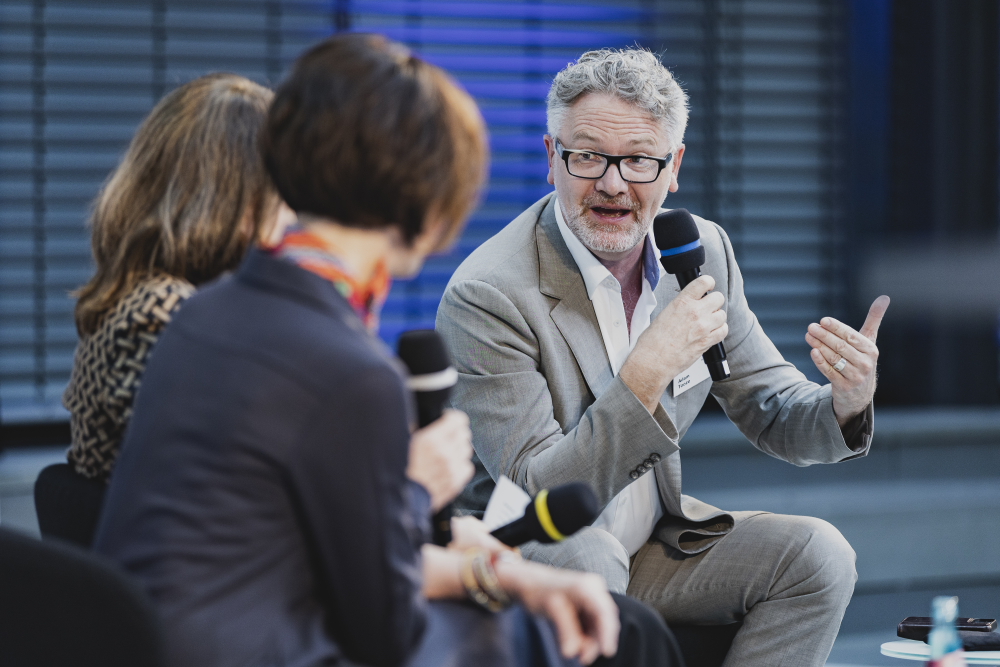
“The U.S. and Europe will face increased cyberattacks coordinated by Russia”
Christopher Painter
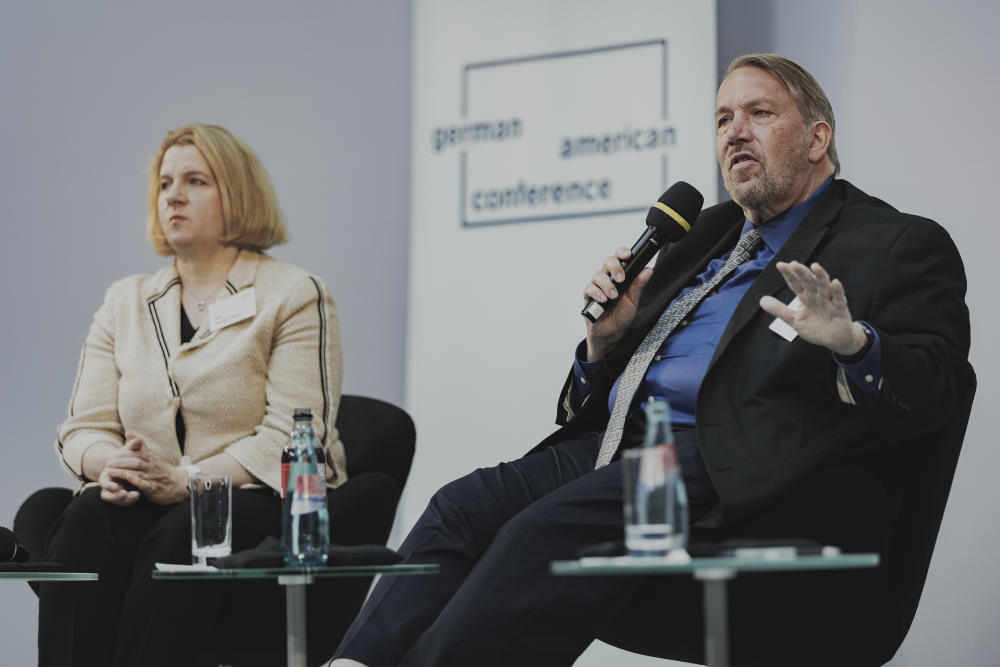
The third panel of the day focused on defending against cyberattacks. In the view of Heli Tiirmaa-Klaar, Director of Digital Society Institute of the European School of Management and Technology, the U.S. and Europe have been engaged in a cyber war with China and Russia for about 15 years. Russia has repeatedly succeeded in attacking strategically important state communications infrastructure. Christopher Painter, President of the Global Forum on Cyber Expertise, affirmed that these are ongoing, very serious conflicts. Moreover, the attacks emanate from criminal groups, often for the purpose of extortion, he said. The Ukraine war also has a cyber dimension. “Once Western sanctions take effect in the long term and really hurt Russia, we will see increased exposure to Russian-coordinated cyberattacks in the U.S. and Europe,” Mr. Painter said. Ms. Tiirmaa-Klaar called for improved information sharing between companies and governments in the West. “We need to get better at the government level at tracing attacks and then sanctioning the perpetrators harshly,” she said. While it is welcome that global cyber norms have been adopted at the UN level since 2015, she said. But now, she said, it is a matter of applying that set of rules. Johannes Steger, Director of “Background Cybersecurity” for Der Tagesspiegel, moderated the discussion.
The final panel of the German-American Conference analyzed the outlook for transatlantic free trade and the global economy. Dr. Laura von Daniels, Head of Research Division “The Americas” at the German Institute for International and Security Affairs, led the discussion. In the United States, the response to the pandemic has been an unprecedented fiscal response, said Dr. John Lipsky, Senior Fellow at the Foreign Policy Institute of the School of Advanced International Studies at Johns Hopkins University. Now, he said, the Federal Reserve and the U.S. government must work to keep inflation expectations low. Professor Dr. Michael Hüther, Director and Member of the Executive Committee of the German Economic Institute, agreed. Central banks need to keep monetary stability in mind and the ECB is currently lagging far behind the Fed. “We have a real risk of stagflation. We need to learn macroeconomic relationships again, especially the interactions between tariff policy, fiscal policy, and monetary policy,” he urged. On free trade, Dr. Lipsky lamented that protectionism has increased in recent years. It is still completely open whether the EU-U.S. Trade and Technology Council (TTC), established a year ago, will produce concrete results, he said. The TTC is a pragmatic approach that the transatlantic partners should pursue because a comprehensive free trade agreement seems unrealistic, Dr. Hüther said. If the West, including Canada, succeeds in setting standards for cutting-edge technology, this would be very important in the area of digital innovation, for example. Lipsky ended the conference by calling for the World Trade Organization (WTO) to be renewed: “The WTO is one of the most important treaty-based multilateral institutions. If we allow it to fall apart, we will live to regret it.” Any reform effort for the WTO is worthwhile, he said.
The American Council on Germany would like to thank Allianz SE for the generous support of this conference.



